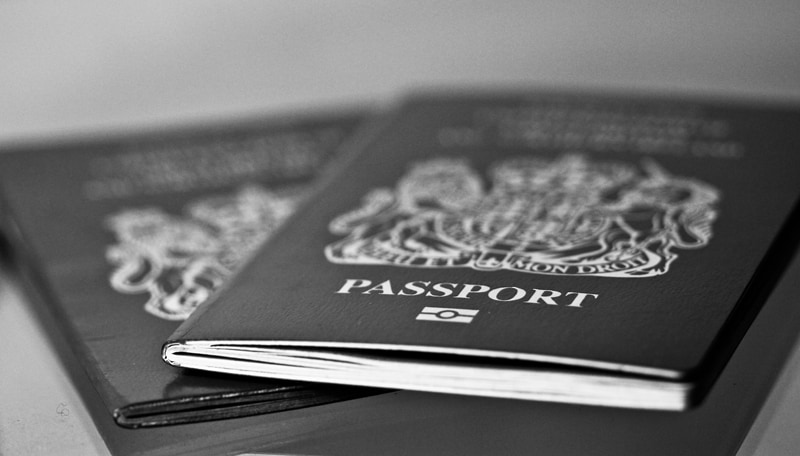Moving abroad can be an appealing opportunity but also an intimidating challenge. At the end of the day, staying somewhere as a tourist for a couple of days and moving abroad for good are two entirely different experiences.
While it’s exciting to embrace unfamiliar cultures and explore opportunities in a foreign country, you will also have to make numerous brave decisions and arrangements on multiple fronts. Particularly traveling during the Covid-19 pandemic, it can be tricky to know where to start.
Nevertheless, more and more people opt to move abroad either for employment or retirement reasons or to experience a different culture and lifestyle. Ultimately, you must have carefully researched all factors and aspects mentioned below and carefully evaluate the pros and cons of each one of them that would best suit you before you decide.
We advise you to refer to a handful of websites in your destination country that would feature helpful information with practical advice and recommendations. In the meantime, we’ve compiled this handy guide covering everything you need to know about moving abroad for good.
Visas And Immigration
Regardless of the country you’re moving to, it’s inevitable that you’ll have to face an enormous amount of paperwork and bureaucracy. You should ensure that all of your information is up-to-date since the laws and regulations may have been revised since the last time you checked. Make sure that you obtain this information from a reliable website or make a call to the consulate in your country.
Make sure that your passport has at least six months of validity remaining to avoid any complications. Other essential documents that you should have with you are birth, educational, marriage certificates, tax and social insurance records, and other official documents that you might need to prove something in the country abroad. Also, make sure to have a document translation in place for each important document to guarantee authorities will accept it in the foreign country.

Once you arrive in the new country, you may be required to apply for an identity card and a residence permit. Also, familiarize yourself with the immigration procedures in your destination country, for instance, if there’s any registration required upon arrival with the immigration department, especially if fees are involved.
Moving Your Belongings

If you want to take your car to use it in your new surroundings, make sure to weigh up the cost of transporting the vehicle and paying import duties compared to the cost of purchasing a new car in your destination country.
Moving abroad means moving a lot of bulky luggage, and the cost of hiring a moving company can be an excellent alternative to transporting everything on your own. Research and consider all your options when it comes to moving your stuff abroad. As a cost-effective alternative, consider fully managed furniture rental services and move straight into your new home and be comfortable from the start.
Property And Accommodation Abroad
Typically, people who move abroad fall into three groups: those who’ve already bought a property, those who intend to rent a property, and those who intend to temporarily stay in a rented property and search for property to buy once they arrive.
It’s best to seek out the expertise of an established relocation agent to help you with accommodation and property, or you can even ask any fellow immigrants who are already living there to suggest suitable locations or a local real estate agent.
Whichever group of people you fall into, be prepared to stay flexible in your living arrangements. Also, the length of time of your stay will play a massive part in whether you’ll be buying or renting. It’s essential to conduct thorough research on aspects like property insurance requirements, capital tax, etc.
Always be careful of property scams and make sure you’ve taken legal advice from an experienced real estate attorney before making any agreements when buying or renting a property or signing any contracts.
Health Issues
You may have to pay for medical care in many foreign countries, even though emergency treatments in some hospitals may be free of charge. Nevertheless, ensure that you have your medical card with you all the time.
In countries where healthcare is ridiculously expensive, you may need to have private medical insurance. For that reason, before traveling to your new destination, we advise you to check with your employer about what your health insurance, if any, does or doesn’t cover.
Cost Of Living
The first couple of months should be when you’re very cautious of all expenditures and budgeting your costs of living until you’re sure you start to maintain a steady income. You should be budgeting for a few things as soon as you arrive including clothing, communication devices, furniture, education, appliances, healthcare, groceries, housing, and transport.
People often find that they spend more than they expect, so be careful; even if you live in a country with a low cost of living, expenditures can pile up quickly if you’re not smart with your finances. If you’re switching places to take up a new job, find out what benefits you’re entitled to that would subsidize some of your relocation expenses.
Managing your finances and setting your realistic cost of living can be a tricky thing to do, so take everything into account and stay reasonable about the lifestyle you can afford.
Language Issues And Culture Shock

Even though the English language has become the global international language in the last couple of centuries, it’s always a great idea to educate yourself in the local language as much as you can to avoid any unnecessary language barrier issues. Check out with your embassy in the destination country if they have any information regarding any helpful language courses for newcomers.
Last but not least, don’t be embarrassed if you end up breaking some cultural taboos once you arrive in a foreign country, even if their domestic culture may not be all that different on the surface. Subjects such as religion might be sensitive ones, so stay aware of these differences and refrain from offending anyone or coming off as insensitive.
Final Words
All things considered, it’s no secret that moving abroad can be highly stressful, and the adverse effects can impact our mental well-being, which in turn can drastically affect our work and personal lives. Be sure to take your time to relax and de-stress, because after all, moving abroad to a nice place that’s entirely distinct from your country of origin is an adventure to be enjoyed.

